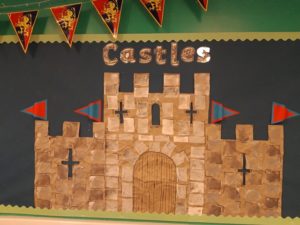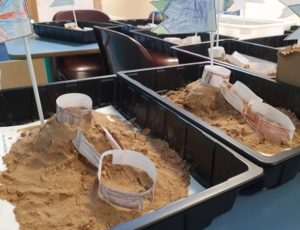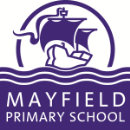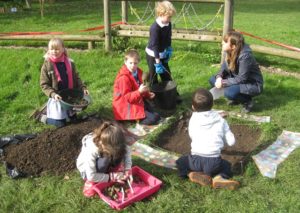
Mayfield History Vision
Teaching and Learning of History
Some of our History Topics
Enrichment
Progression of Skills
Mayfield History Vision
We want children to leave Mayfield with a coherent knowledge and understanding of Britain’s past and the wider world. They are enthusiastic, curious and questioning learners. They are able to make connections with what they have learnt previously and what they are learning now. They are developing a mental timeline – linking their knowledge and understanding of different time periods to see where everything fits chronologically. They have developed their critical thinking to be able to question reliability and bias of primary and secondary sources.
top
Teaching and Learning of History


We love History at Mayfield and want to inspire the children through carefully planned practical hands on sessions, alongside lessons that imbed chronology, knowledge and critical thinking. Teaching follows Mayfield Learning Objectives that have been carefully planned to link with the National Curriculum guidelines and ensure progression of skills across all year groups. History is taught through a variety of topics covering events beyond living memory, significant nationally or globally to more currents events and changes within living memory. We are lucky to live in a city with a rich historical past and local history studies happen in both KS1 and KS2. Y2 during their Castles topic think about why Cambridge once had a castle and visit the site. Y5 study the Tudors and are able to look at the many examples of Tudor architecture.
In Reception children follow the EYFS framework, outcomes for History come from the area ‘Understanding the world’:
- To talk about past and present events in their own lives and in the lives of family members.
- To know about similarities and differences between themselves and others, and among families, communities and traditions.
- To know about similarities and differences in relation to places, objects, materials and living things.
For Y1-Y6 The National Curriculum for History aims to ensure that all pupils:
- know and understand the history of these islands as a coherent, chronological narrative, from the earliest times to the present day: how people’s lives have shaped this nation and how Britain has influenced and been influenced by the wider world
- know and understand significant aspects of the history of the wider world: the nature of ancient civilisations; the expansion and dissolution of empires; characteristic features of past non-European societies; achievements and follies of mankind
- gain and deploy a historically grounded understanding of abstract terms such as ‘empire’, ‘civilisation’, ‘parliament’ and ‘peasantry’
- understand historical concepts such as continuity and change, cause and consequence, similarity, difference and significance, and use them to make connections, draw contrasts, analyse trends, frame historically-valid questions and create their own structured accounts, including written narratives and analyses
- understand the methods of historical enquiry, including how evidence is used rigorously to make historical claims, and discern how and why contrasting arguments and interpretations of the past have been constructed
- gain historical perspective by placing their growing knowledge into different contexts, understanding the connections between local, regional, national and international history; between cultural, economic, military, political, religious and social history; and between short- and long-term timescales.
top
Some of our History Topics
Y1 All about me, We are Scientists (Mary Anning), Shipmates, All Aboard (first flight)
Y2 History of Toys, Frozen Planet (Arctic and Antarctic explorers), Great Fire of London, Castles
Y3 Stone Age to Iron Age, Ancient Egyptians,
Y4 Romans, The House of Wisdom (Islamic golden era) Education for all
Y5 Anglo Saxons, WW1, Tudors
Y6 Ancient Greece, Vikings, Invaders – Battle of Britain, The Maya culture
The children demonstrate their knowledge and understanding through discussion, role play and by the work they produce in their books. Pupil voice is important and there are opportunities to reflect and share their thoughts on topics.
top
Enrichment
We offer opportunities for children to explore history beyond the classroom and often use the outdoor space as part of our topic work. Y3 have been archaeologists in the school grounds to dig and carefully examine finds and Y4 have practised Roman battle techniques in the hall and on the field.
We often have trips or visitors to engage children with their learning about the past. Previously these have included – Y1 visit to Shuttleworth transport museum, Y2 trip to the Scott Polar Museum in Cambridge, Y5 visit to Kentwell hall and Y6 visit to IWM Duxford. We have strong links with our local museums, not only visiting them but using the loan boxes they offer to enhance lessons. We work closely with The Fitzwilliam Museum, taking up training opportunities to help teachers use museum collections to inspire children in the classroom.
top
Progression of Skills


